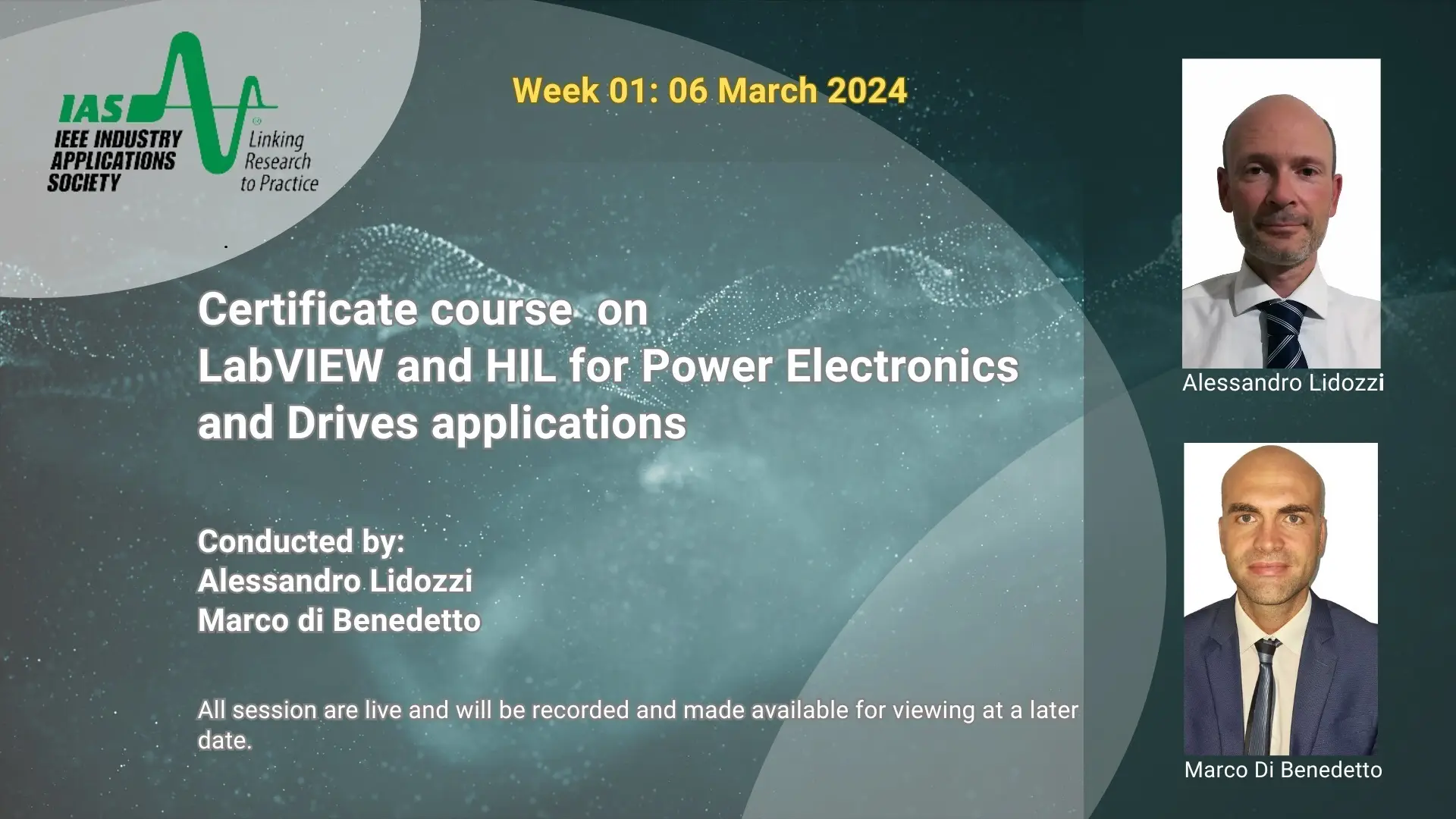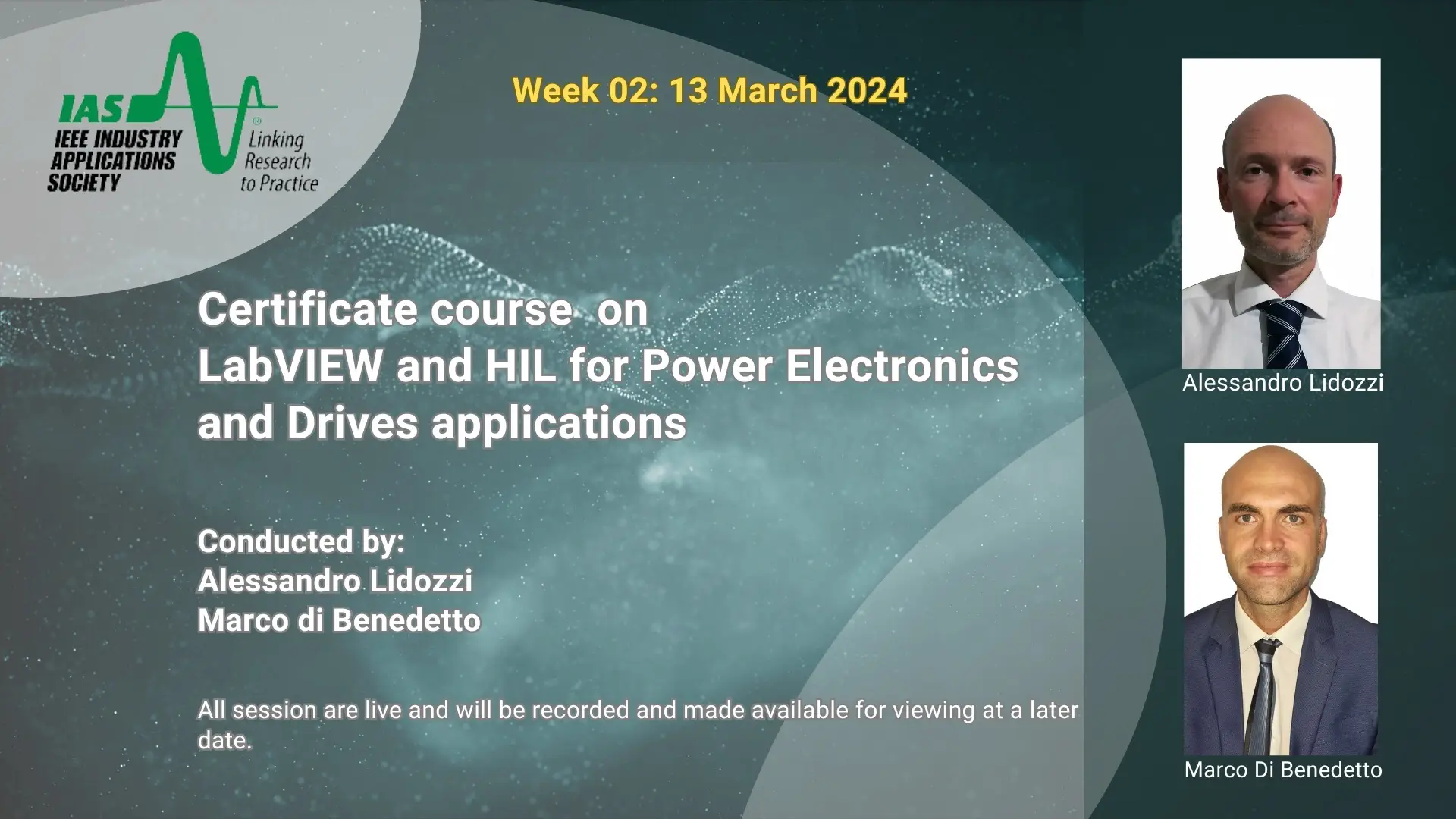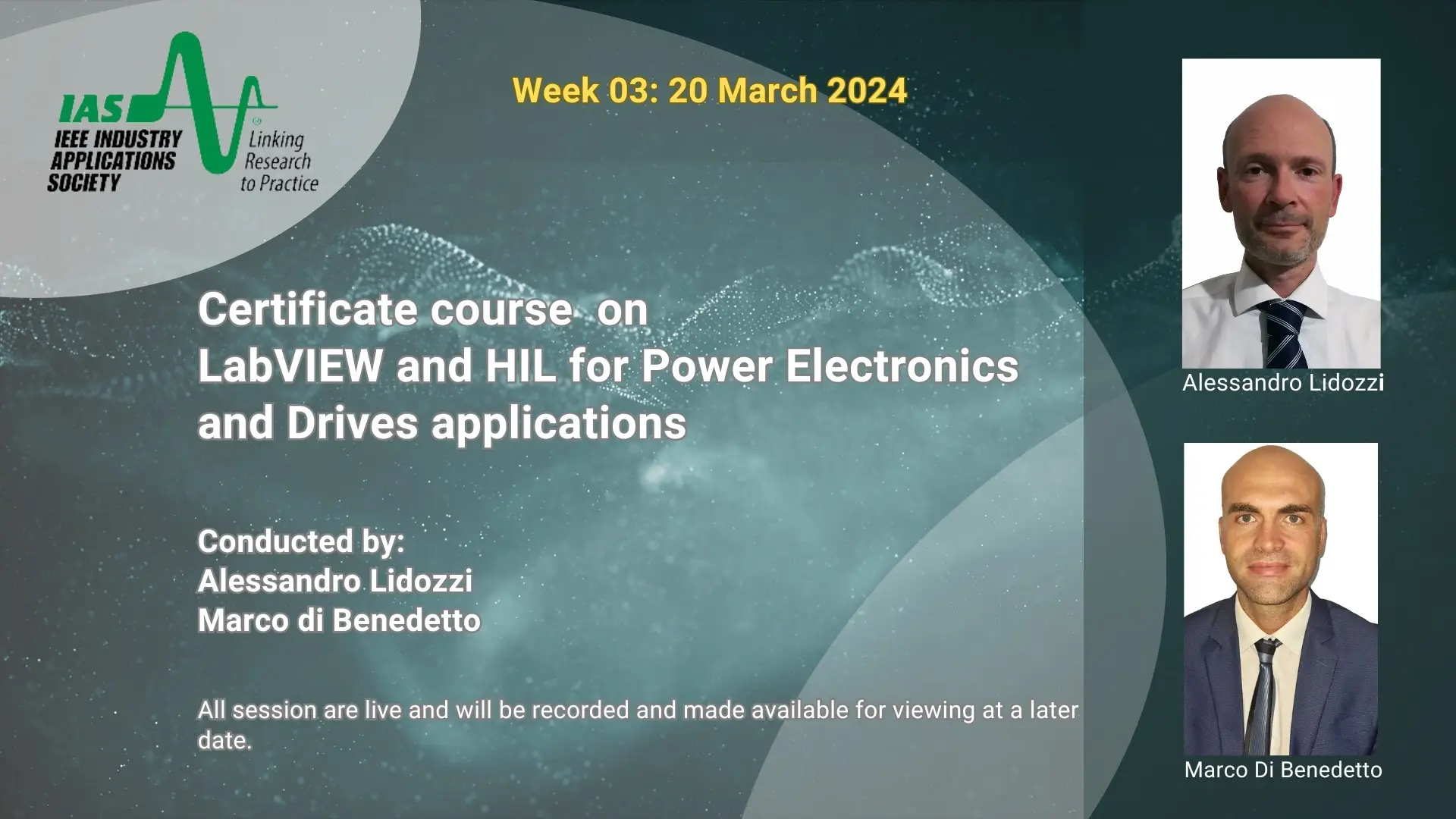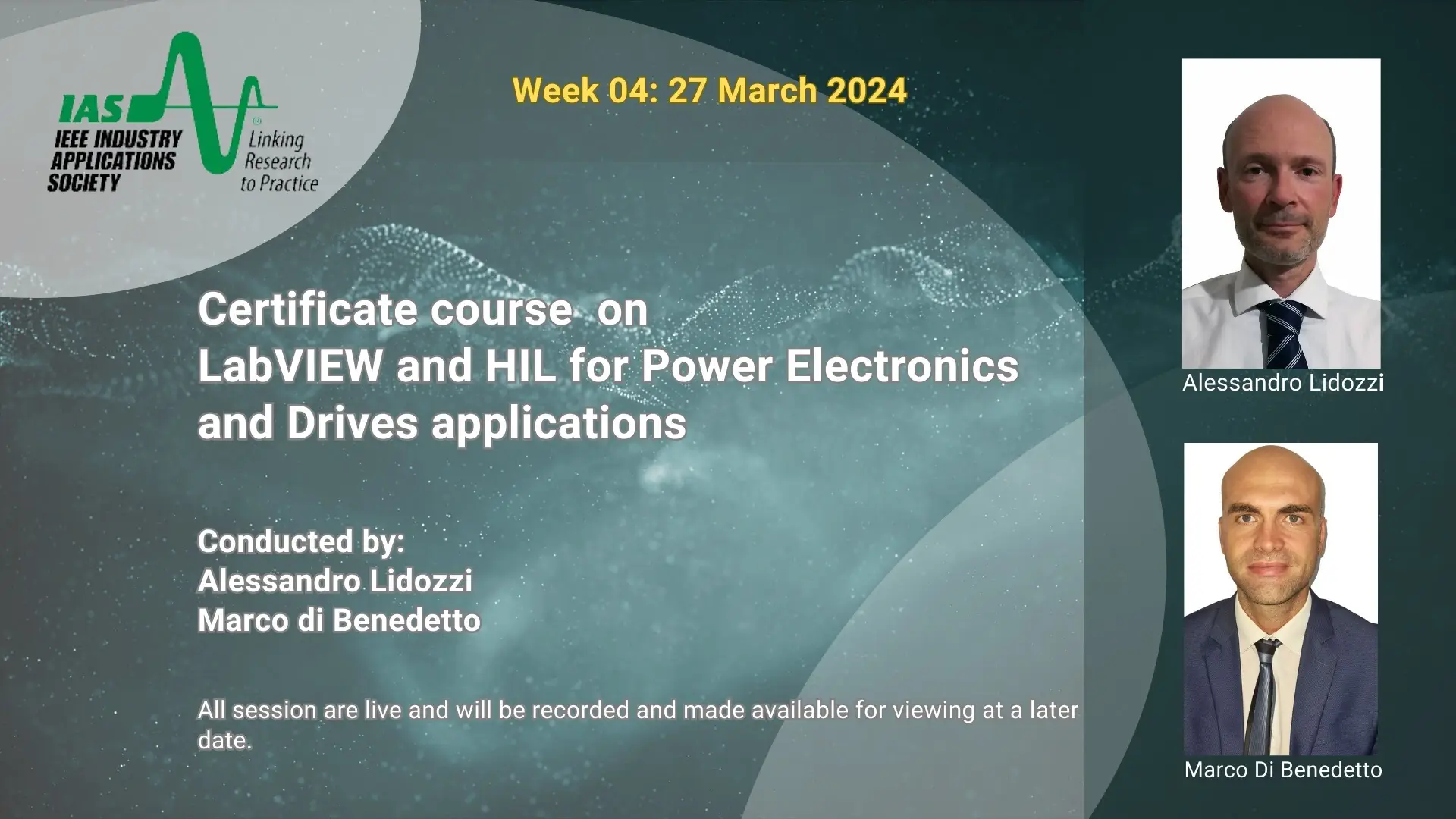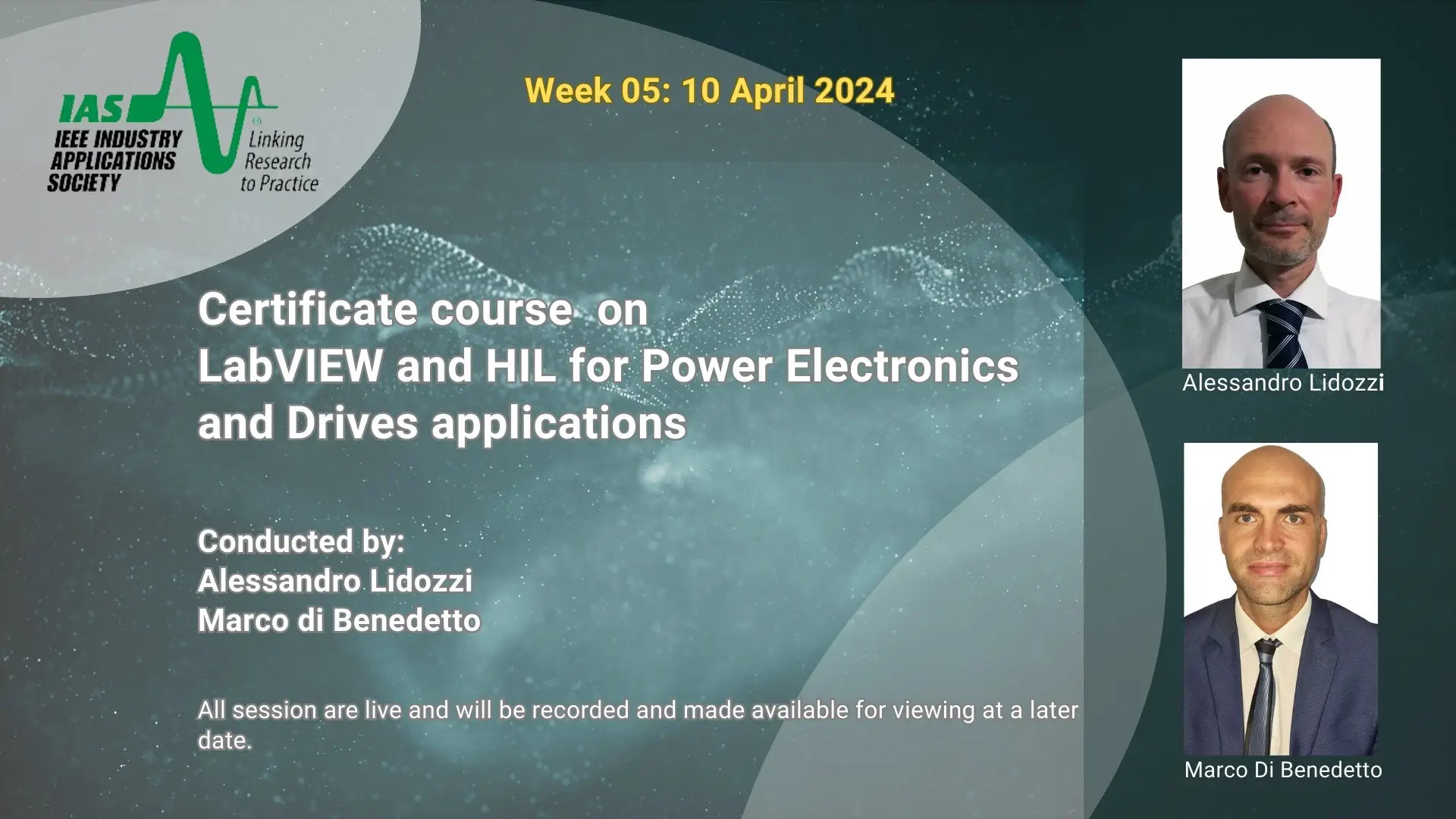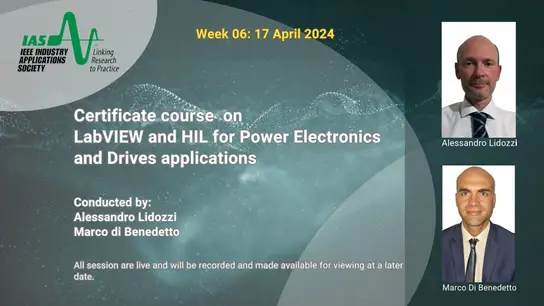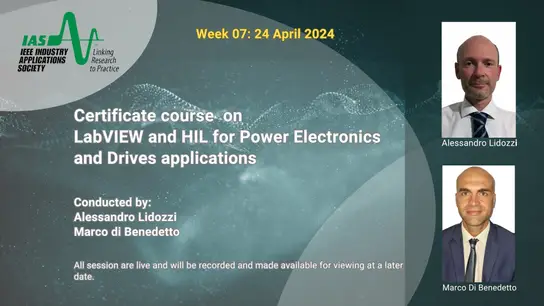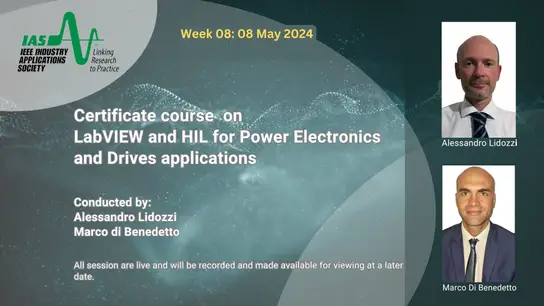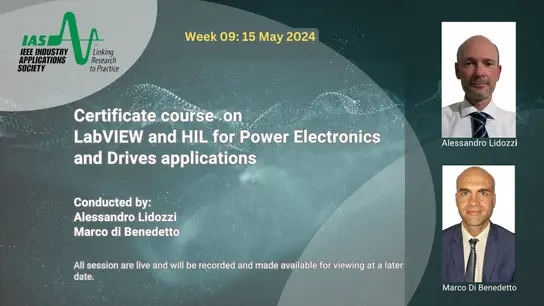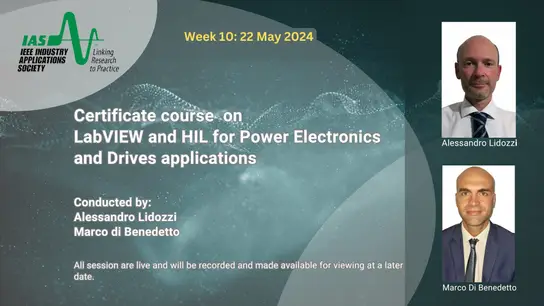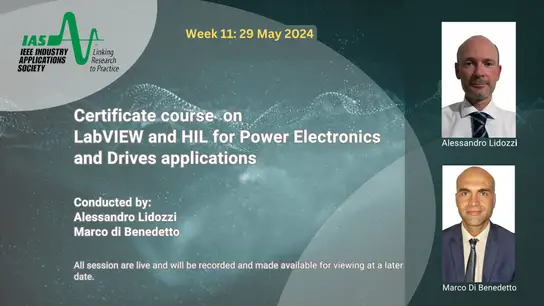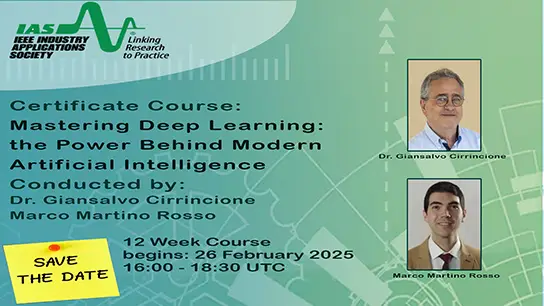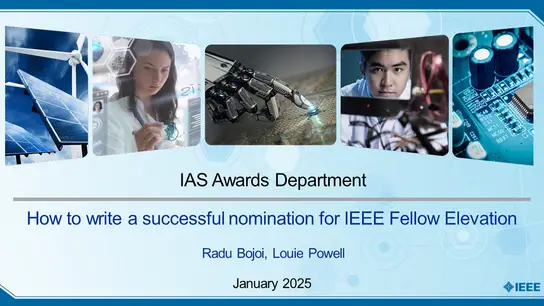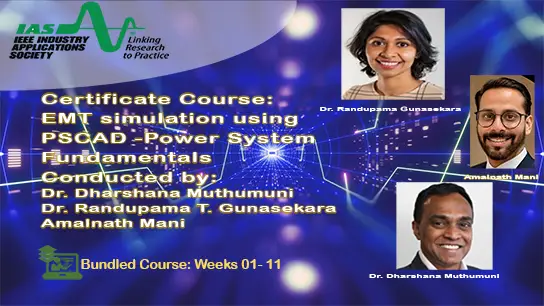LabVIEW and HIL for Power Electronics and Drives Applications (Bundle)
Alessandro Lidozzi, Marco di Benedetto
-
Members: $75.00IAS
IEEE Members: $150.00
Non-members: $250.00Products: 11
About this Bundle
This course bundle contains all 11 weekly courses and will cover the methodologies to switch to new graphical programming development environments, starting with a review and going into the most promising solutions.
Nowadays, even a typical power converter can exhibit more active devices and higher switching frequency than ever to satisfy a higher control performance demand. This increases complexity related to the control board, where usually a combined (or DSP) and FPGA are installed. Those two "actors" require a completely different programming approach and development tools from traditional boards. Accordingly, control algorithm development is considered a "time consuming" task within a research or industrial project. The Integrated Development Environments provided by the control platforms manufacturers, or third parties constantly move from the classical, old, text-based approach to a new, fast, and simple-to-learn graphical programming method. Moreover, a high level of abstraction is usually demanded to accelerate the learning time, even for non-specialist workers. However, full control of the hardware is still mandatory. The course will cover the methodologies to switch to new graphical programming development environments, starting with a review and going into the most promising solutions. Code splitting between targets, best practices, and code efficiency will be part of the course. Alessandro Lidozzi received the Electronic Engineering degree and the Ph.D. degree from the Roma Tre University, Rome, Italy, in 2003 and 2007, respectively. Since 2017, he has been Associate Professor with the C-PED, ROMA TRE University. His research interests are mainly focused on power converters and electrical machines modeling and control, Hardware-In-the-Loop real-time simulators and Power-Hardware-In-the-Loop emulators, graphical programming of FPGA and development of high-performance control platforms based on combined DSP-FPGA targets. Marco di Benedetto received the M.Eng. degree in Electronic Engineering from the University of Roma Tor Vergata, Rome, Italy, in 2014, and the Ph.D. in Mechanical and Industrial Engineering from the Roma Tre University, Rome, Italy, in 2018. Since November 2018, he has been a Research Fellow with the Center of Power Electronics and Drives at Roma Tre University. In October 2022, he was appointed to position of Assistant Professor at Roma Tre University. His research interests mainly focus on hardware and FPGA control design for multilevel power converter topologies.
29 May 2024
